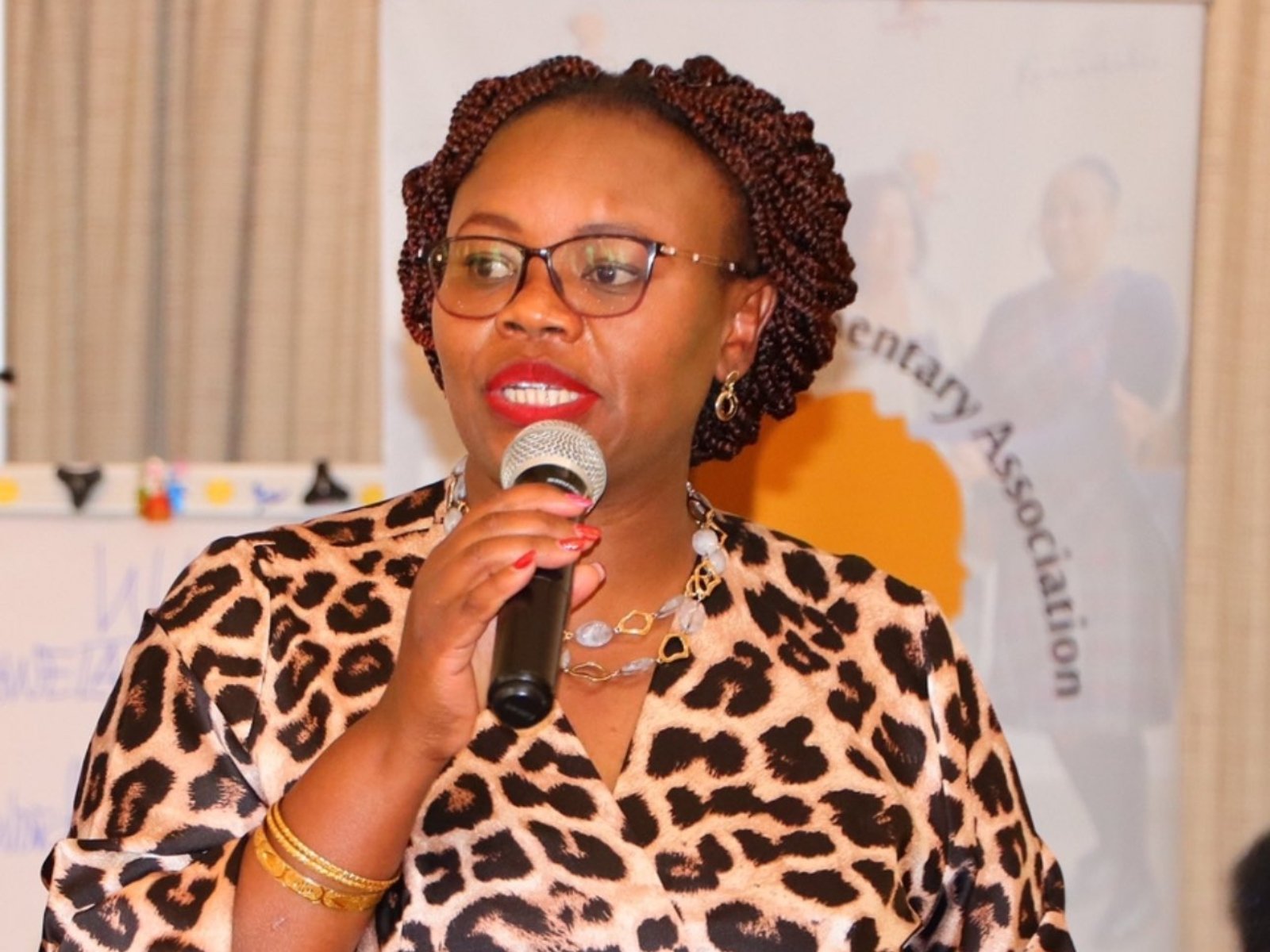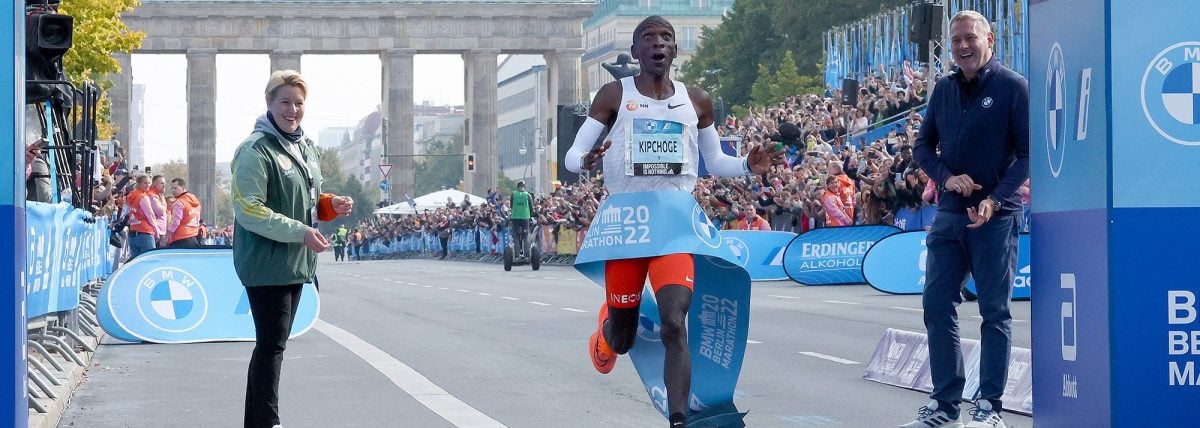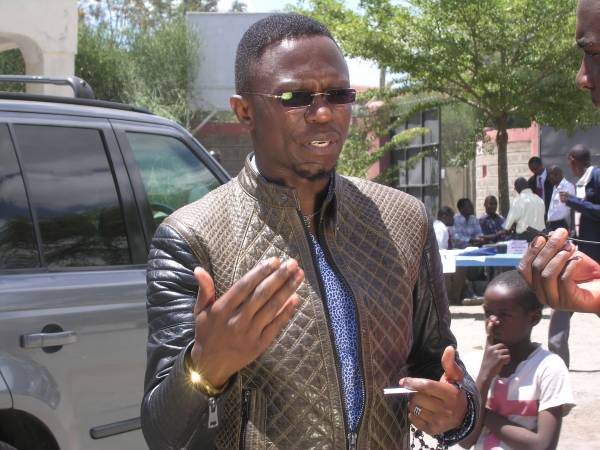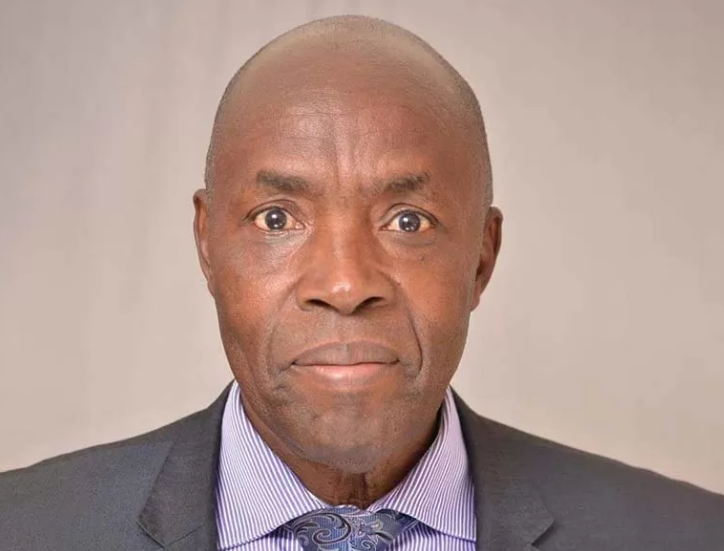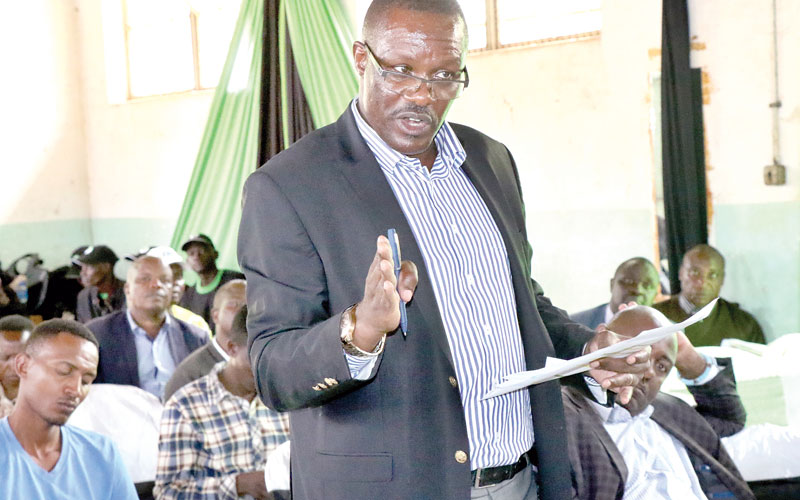Raila, Ruto camps battle to outdo each other’s messaging
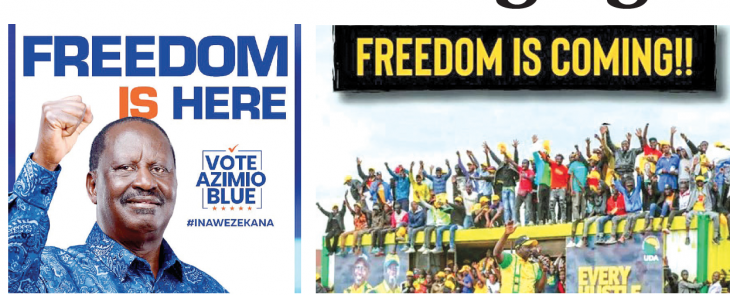
Leading presidential candidates appear to be struggling to inject new ideas into their campaigns with 20 days to the August 9 elections.
As the search for votes enters the homestretch, Deputy President William Ruto and Azimio leader Raila Odinga campaign teams seem to have been left peeping into their competitor’s locker room in the hunt for something new to pepper their bids before voting day.
The two teams are battling for the attention of the 22 million voters with the focus on branding and an attempt to outdo their opponents in all the fronts.
As has been the case in previous elections, the country is yet again being treated to a prolonged campaign period that started months ago but now seems working against their branding team’s creativity.
Raila’s team has recently come under attack for allegedly plagiarising Ruto’s slogans after the former shared a poster of himself with a banner ‘Freedom is Here’. The Azimio leader posted it on his social media handles last week attracting thousands of likes and comments.
Ruto’s allies immediately accused him of trying to emulate their ‘Freedom is Coming’ posters accompanying Ruto’s images they started circulating months ago.
“Hakuna freedom inakuja…freedom is here,” posted Raila alongside the poster.
The fight for ‘Freedom’ is yet another battlefront in the larger war for the country’s presidency as the two camps engage in bare-knuckle exchanges with few days remaining for them to sway the majority of voters to their side before next month’s polls.
When he launched his manifesto on June 30, Ruto said he was seeking better livelihoods for the millions of the downtrodden, he has branded hustlers, through the “Freedom-is-Coming” mantra. He said the past struggles had ignored their plight.
“Throughout all these struggles, there is one domain that has remained outside the purview of political action and this is economic power – the economic turbulence that we are in demands more than a manifesto, it requires a credible economic turnaround plan, a plan that gives Kenyans credible, realistic hope,” Ruto said when he launched his manifesto.
Political analyst Sironka Ole Masharen said the country enjoys political freedom adding that it is only lacking economic freedom.
“It is not clear what Ruto means by Freedom is coming. He has a challenge to tell people what he means by this, is it economic freedom? If it is, then he is right because we need that freedom. We have had political freedom that is why people can dare insult the President and nothing happens to them,” he told People Daily.
Sironka said Raila, having participated in the second liberation that entailed the fight for multi-partism in the early 1990s and the push for the new Constitution before its promulgation in 2010, enjoyed more connection with freedom than other politicians.
Hustlers Agenda
Ruto allies have also accused Raila of trying to copy the Hustler’s agenda through the Jitihada la Shahada policy the former has promised to implement if elected.
But the DP also came under a barrage of accusations for allegedly copying Raila’s manifesto. According to ODM chairman John Mbadi, Raila’s messaging for the 2022 elections has been the quest to reunite Kenyans torn by deep ethnic divisions and that the branding had to be catchy and promise hope. “This is the ideology behind inawezekana,’’ Mbadi explained, recalling that it is not Raila alone who is the first to coin slogans that resonate with the voters.
He said that in 2008, US President Barack Obama captured the attention and imagination of the millions of voters in the country with his campaign slogan ‘Yes We Can’ that propelled him to become the first US black leader. “This served as inspiration for people to get involved in the campaigning and make a difference. And it was uniquely suited to Obama’s campaign just like we see in the Raila-led Azimio,’’ he added.
Marketing brand manager Bernard Omondi said the success of any slogan depends on how relatable it is and how much it is shared with the targeted audience.
“It is the message which carries a candidate’s ideas and how it is shared with the voters that makes it stick with the voters or not,” he said.
Political scientist Wilson Agenya said Azimio’s Inawezekena was a catchy slogan as is Ruto’s Bottom-Up slogan.
“The parties’ campaign slogans have helped the leading national parties get better attention ahead of the August 9 General election. It will create a decisive impact in this year’s elections,” he said. He said voters were always bound to sing along a slogan that represented their wishes. “It will be incumbent upon the voters to decide which party to stick with, which its manifesto will impact their livelihoods considering the tough economic times,’’ he added.




